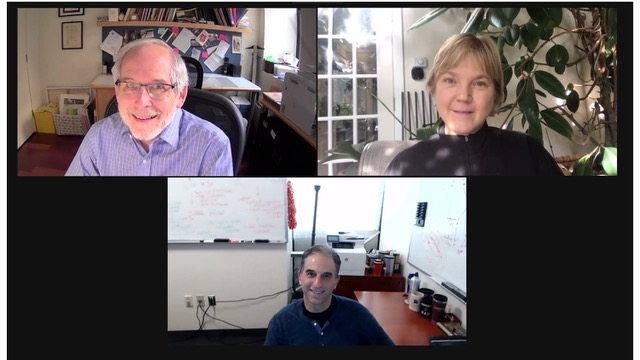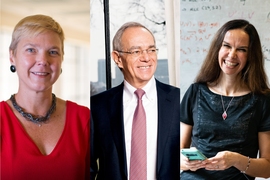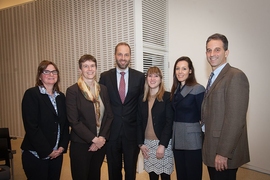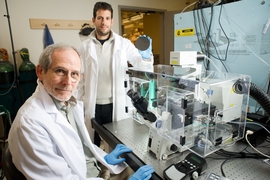The MIT Center for Multi-Cellular Engineered Living Systems (M-CELS), launched in September 2020, takes a new, multidisciplinary approach to designing purpose-driven living systems.
Under the leadership of Roger Kamm, the Cecil and Ida Green Distinguished Professor of Biological and Mechanical Engineering; Linda Griffith, the School of Engineering Teaching Innovation Professor of Biological and Mechanical Engineering; and Ron Weiss, professor of biological engineering and electrical engineering and computer science, the Center for M-CELS held its launch workshop on Sept. 25. Faculty from 12 departments across three schools at MIT participated in this initial community-forming event. The Center for M-CELS is based in the School of Engineering.
“We plan to coalesce a group at MIT with the common goal of understanding the fundamental processes that underlie and determine the form and function of all multicellular systems,” says Kamm. “New opportunities and capabilities stem from a recently gained appreciation of how biological systems emerge through self-assembly, and how we, as engineers and scientists, can guide this process, drawing upon the unique intrinsic capabilities of individual cells.”
Multicellular engineered living systems (M-CELS) are purpose-driven living systems with multiple interacting living components. They are engineered for specific goals or functions, but take emergence into account during the design process, allowing the final system to emerge through natural and non-natural biological processes. M-CELS research is intended to provide a fundamental understanding that enables a quantitative approach bridging between single cells and organs or organisms. The field is still developing, so M-CELS as a field of research is still rapidly expanding.
The Center for M-CELS will focus on government- and industry-funded research related to microphysiological systems and disease modeling, tissue regeneration, non-medical applications of multicellular living systems, biobots, and basic science. This research will likely have uses in pharmaceutical drug development. In addition to research, the center will have education and workforce development components.
“We were thrilled with the energy and enthusiasm among the faculty at the launch workshop in September,” says Weiss. “There were great discussions, informative talks, and lots of excitement about future opportunities.”
The MIT Center for M-CELS grew out of a science and technology center funded by the National Science Foundation called the Center for Emergent Behaviors of Integrated Cellular Systems, which has been headquartered at MIT since 2010, with Georgia Tech and the University of Illinois at Urbana Champaign as primary partners.









